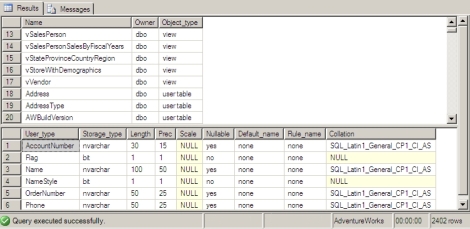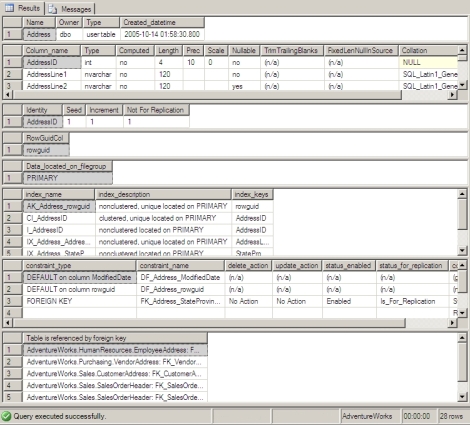Tag Archives: Stored Procedure
20/10/2010 Obtaining Database Information Using sp_helpdb
Following on from my previous post on sp_help, the sp_helpdb stored procedure provides useful information at the database level.
Running sp_helpdb without specifying a database provides an overview of all databases within the instance.
 The query returns the following information:-
The query returns the following information:-
name
database size
owner
database id
creation date
database status
compatibility level
By specifying a database,
sp_helpdb 'AdventureWorks'
additional information is provided on that databases data files and log files:-
Tags: database, sp_helpdb, SQL, SQL Server, Stored Procedure, T-SQL
- Leave a comment
- Posted under Stored Procedure
20/10/2010 Using the sp_help Stored Procedure
sp_help is an invaluable inbuilt SQL Server procedure that returns information on a number of different objects. Here are some examples of its use:-
Executing
sp_help
without specifying a context returns a list of all objects within the current database. The name, owner and object type are returned. Additionally, any user defined data types within the database are listed:-
Executing
sp_help tablename
returns information relating to the table. The first results set provides information relating to the table itself. The second results set provides information on the columns, such as data type and data length. Beneath that are information on identity columns, GUIDs, filegroup location, indexes, constraints and foreign key references:-
Try running sp_help against other objects (indexes, columns, filegroups, constraints, procedures, functions) to see what useful information you can gather.
Tags: sp_help, SQL, SQL Server, Stored Procedure, T-SQL
- 1 comment
- Posted under Stored Procedure



